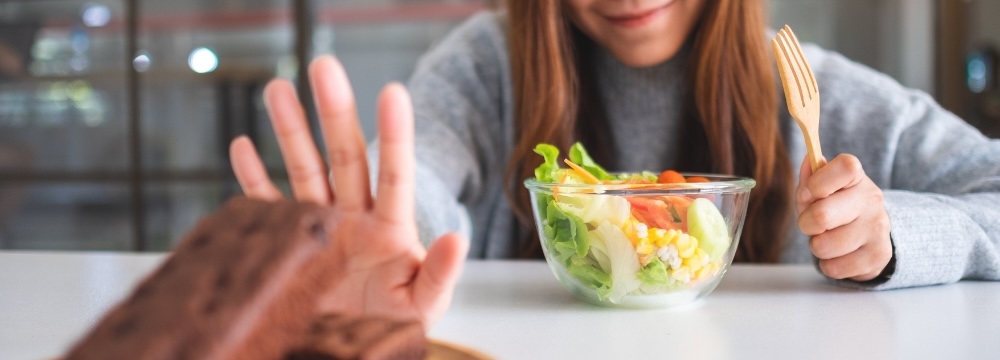
Bariatric surgery marks a significant turning point in a person’s health – a chance to reclaim energy, improve well-being, and build a new relationship with food and self-care. While much of the focus naturally falls on the individual undergoing surgery, the family environment can play a critical role in supporting long-term success.
When parents invite their children into the changes taking place in age-appropriate and engaging ways, it creates opportunities for stronger family bonds, shared momentum, and a healthier lifestyle that benefits everyone.
Make Mealtime a Family Affair
Healthy eating after bariatric surgery is centered around mindful, intentional choices. Children benefit from being a part of this process, too. Try giving them small, meaningful roles in meal planning, grocery shopping, or food prep. Let younger kids choose colorful produce or stir ingredients, while older ones help read labels or chop veggies (with supervision).
These shared routines help normalize nutritious food choices and make mealtimes less about restriction and more about connection. You don’t have to cook separate meals or explain every food choice; simply sharing a table and enjoying the same nourishing food sets a powerful example.
Play With Movement
Post-surgery movement often starts small, but even gentle activity is a chance to include your kids. Go on family walks, stretch together, dance in the living room, or play simple outdoor games. What might begin as your daily exercise can become a shared family ritual that prioritizes movement in a fun, low-pressure way.
Children are natural movers – tap into their energy and creativity. Invite them to set the playlist, pick the route, or lead the activity. Turning exercise into play keeps things light and helps you stay consistent. Prioritize being active together and enjoying the moment.
Make It a Game
Kids usually respond well to a good challenge or reward system, which can be used to create shared goals. Try setting a family hydration challenge. Or start a “try new foods” bingo board with rewards for tasting something outside their comfort zone. The reward system doesn’t have to be anything monumental – even stickers or a trip to the park can spark joy and reinforce the sense that healthy choices are worth celebrating.
Even small achievements can lead to big excitement. These playful strategies not only help kids stay engaged, but they also reinforce your progress.
Use Your New Routine as a Teaching Tool
Without turning everything into a lesson, look for organic moments to share what you’re learning. For example:
- Explain why you’re eating slowly or putting your fork down between bites.
- Talk about what hunger and fullness feel like.
- Let them see you pause before making food choices.
This helps children develop body awareness and curiosity about how food impacts energy, mood, and focus. Inviting them into your process also lays the foundation for skills they’ll carry forward, like positive food boundaries, emotional regulation, and a healthier self-image.
Become Health Innovators
Transform your kitchen or living space into a family health innovation lab. Together, you can design “experiments” to explore new recipes, food combinations, or hydration hacks. For example, try making homemade infused water with unexpected fruit and herb combos or create mini “smoothie tastings” to discover new favorites. Track what everyone likes and what sparks curiosity.
And why stop at food? Branch out into mood boosters and wellness inventions by testing out activities that lift energy or calm the mind, like family yoga sessions, creative breathing exercises, or building a playlist of songs that shift the vibe. You can even explore new ways to move that feel more like play than a workout. Try inventing a secret handshake stretch, making up a dance, or turning chores into a timed obstacle course.
An experimental approach reduces pressure to be perfect. It reinforces the idea that wellness is something you get to explore together, and not something you have to “get right.”
Create New Traditions
If your old traditions revolved around food (like fast food nights or celebratory sweets), it can be helpful to build new rituals together. Maybe Friday night becomes family game night, or you swap an ice cream outing for a smoothie-making contest.
By creating new ways to celebrate, decompress, and connect, you reinforce that joy and the idea that family time doesn’t have to revolve around food.
Acknowledge the Wins
Let your children be part of your cheer squad. If you reach a milestone, share your excitement. If you make it through a tough week of meal planning or activity goals, let them know. This teaches empathy and encourages kids to recognize effort and progress in others as well as themselves.
In turn, celebrate their wins, too. Perhaps they tried a new veggie, went on that walk with you, or suggested a healthy swap. Reinforcing each other builds mutual encouragement.
Keep It Age-Appropriate
Not every child needs to know the specifics of bariatric surgery. The goal is to share your lifestyle changes in a way that invites participation, not pressure. With younger kids, focus on family fun and healthy habits. With teens, you might be more open about your goals and what support looks like.
You don’t need to hand over the challenges of your experience – just offer them a front-row seat to healthy change.
Let Them Inspire You, Too
Sometimes, it’s your kids who remind you to stay committed. They may ask for the walk you don’t feel like taking, or request the veggie snack you were going to skip. Let them be part of your motivation. Their involvement can make this journey less isolating, more joyful, and ultimately more sustainable if you’re willing to invite it.
Lead by Living, Not Lecturing
Kids learn best by watching, not just listening. Let them see what it means to take control of your health, stay committed, and handle setbacks with grace. When they witness you taking care of yourself with intention, they learn to value self-care, too.
Show up, again and again, and let them grow alongside you.
At SAMPA, we want to make sure we’re answering your questions, as well as your kids. We’re here to help with tips, tools, and support that keep pace with your progress and family dynamics. Schedule an appointment today!










